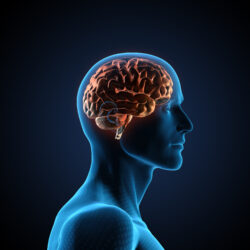Types of Cognitive Distortions and How to Challenge Them

We all have thoughts that replay themselves in our heads. We might think to ourselves, “don’t forget your keys,” or “I have so much to do.” We might have more self-demeaning thoughts, too, like “I can never do anything right,” or “if I just lost some weight everything would be OK.”
Having reoccurring ideas that pass through our minds isn’t a bad thing. Sometimes it can be helpful and this kind of self-talk can aid us in regulating our emotions, remembering things or creating useful patterns in behavior.
Positive or neutral thoughts that repeat are normal. Negative repeating thoughts, however, are another story. If you experience cycles of negative thinking it’s likely you’re dealing with cognitive distortions. Read on to find out what causes cognitive distortions and the easiest ways to overcome them.
What is cognitive distortion?
Europe’s Journal of Psychiatry defines cognitive distortions as negative biases in thinking that are related to depression and other mental health disorders. Cognitive distortions are cycles of maladaptive thought patterns and are typically exaggerated or irrational.
Cognitive distortions make it difficult for a person to see reality accurately. These thinking patterns skew a person’s perspective regarding oneself and the world around him or her.
What causes cognitive distortions?
Cognitive distortions are closely related to conditions like depression, anxiety, self-worth, eating disorders and substance use disorders. It could lead one to wonder whether mental health causes cognitive distortions or vice versa.
While cognitive distortions can worsen the symptoms of mental health disorders, it’s usually the cognitive distortions that come first and contribute to the onset of mental illness. Cognitive distortions are learned patterns and may stem from adolescence or early childhood. It’s also possible to develop cognitive distortions as an adult.
Cognitive distortions are formed as a person’s response to adverse life events. Trauma, domestic violence, bullying, neglect or abuse and such events stimulate thoughts that are not based in reality in order to help a person cope through difficult times. These types of thoughts often linger and escalate into cognitive distortions.
What are the types of cognitive distortions?
Below, you will find descriptions and examples of a few common types of cognitive distortion to help you evaluate whether you may be engaging in these types of thinking patterns.
All-or-nothing thinking
All-or-nothing thinking means viewing situations in one extreme or another. For example, “My classmates are so smart, they always get 100s. I’m so dumb because I only get 90 percent on my tests.”
Catastrophizing
Catastrophizing is when a person assumes the worst possible outcome is what will happen. For example, “If this presentation doesn’t go perfectly, I will get fired. Then I’ll get kicked out of my apartment because I can’t pay rent.”
Emotional reasoning
Emotional reasoning is when a person bases his actions on feelings instead of known facts. For example “I feel like my family is mad at me so I’m going to avoid them at all costs.”
Personalizing
Personalizing occurs when you think someone else’s behavior is a direct result of your own actions. For example “I know my kid is misbehaving because I’m a failure as a parent.”
Mind Reading
Mind reading is believing you know what others are thinking about you. For example “My friends think I’m boring, that’s why they said they can’t hang out tonight.”
How to overcome cognitive distortions
If these cognitive distortion types have resonated with you, you may be wondering whether these patterns are reversible. In order to heal these damaging thought cycles and alleviate the feelings that accompany them, you’ll need to learn how to rationalize these irrational thoughts.
Cognitive behavioral therapy (CBT) and dialectical behavioral therapy (DBT)
Many forms of therapy include some components of cognitive or dialectical behavior therapy. These frameworks are two of the most evidence-based and effective methods of treating mental health disorders and will train your mind to oppose harmful thoughts.
Learning how to overcome cognitive distortions starts with identifying your own negative thought patterns. With the help of a therapist or counselor, you can pinpoint the most detrimental cognitive distortions and address them. You’ll create positive and purposeful statements to replace the poor self-talk you’ve become accustomed to.
You’ll also be able to identify the emotions that precede and result from these thoughts. For example, you may notice a feeling of insecurity always comes before you personalize the behavior of others around you. A long-entrenched pattern of self-deprecating may have been established in your teenage years and carried over into adulthood, affecting your self-esteem now.
The goal of both CBT and DBT is to change behavior by changing thoughts. When your thoughts are based in reality, productive and affirming towards yourself and the world around you, you’ll find that your behavior changes to match your new, more manageable world.
CBT and DBT can challenge your cognitive distortions by putting things into perspective, engaging in compassion towards yourself, analyzing things logically and creating goals as a positive marker instead of using negative ones.
Undo negative thinking now
working with a mental health professional is the most effective and easiest way to put your cognitive distortions to rest. If you’re ready to start living a happy, free life, check out High Focus Centers PA. A trained therapist or counselor can help you identify damaging self-talk and teach strategies for how to overcome cognitive distortions.








